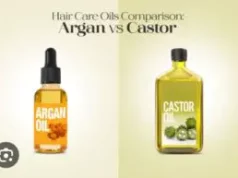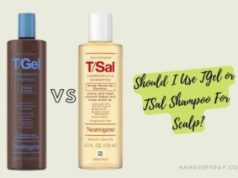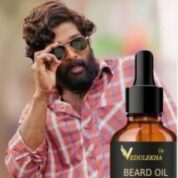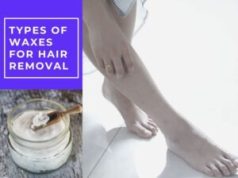It can get humiliating to scratch your hair constantly, right? That I have the finest shampoos for dry scalp and itchy scalp will help you maintain healthy hair and keep your hands off your hair.
We are all guilty of neglecting to give our manes due care and time.
I was seeking for a rapid treatment because I had a busy schedule, especially during these winter months when our hair is more prone to dandruff.
When the scalp does not produce enough moisture, it becomes dry.
In this weather, dandruff is one of the most frequent problems brought on by a dry, itchy scalp.
Our gorgeous manes may suffer damage from the chilly, dry air, and we may develop a lot of issues
Dandruff can appear if the scalp is dry and itchy and contains flakes.
Your scalp will be more scaly and scratchy if it is dry, which can be uncomfortable.
You would need to take better care of your scalp by utilising additional oils and shampoos that condition it.
Use a mild conditioner on the ends of your hair if your hair is very dry and frizzy before using shampoo.
Your hair will become more hydrated as a result, preventing dryness.
Also Read: How Long Does it Takes To Get Highlights?
How did I test the top hair products for dry scalps?
Following a few weeks of use on my own hair, I assessed these products on a scale of 1 to 5 using the following factors.
Moisturising Capacity: Naturally, the first thing I looked at was how well the shampoo hydrated my parched scalp.
Anti- inflammation: I needed a shampoo that also lessens redness and sensitivity because dry scalps and itching often go hand in hand.
Gentleness: I also searched for SLES and SLES products that were safe for damaged and color-treated hair.
Top Shampoos For Dry Scalp 2023
I don’t have access to real-time data or information beyond my last training data in September 2021, so I can’t provide specific information about the top shampoos for dry scalp in 2023. However, I can suggest some popular shampoos known for addressing dry scalp issues that were well-regarded as of my last update. Please note that newer products may have entered the market since then, so it’s a good idea to check for updated reviews and recommendations. Here are some shampoos for dry scalp:
- Head & Shoulders Dry Scalp Care Shampoo: Head & Shoulders is a well-known brand for addressing scalp issues. Their Dry Scalp Care Shampoo contains pyrithione zinc to combat dryness and flakes.
- Neutrogena T/Gel Therapeutic Shampoo: Neutrogena’s T/Gel shampoo is designed to treat various scalp conditions, including dryness and dandruff. It contains coal tar as the active ingredient.
- Nizoral A-D Anti-Dandruff Shampoo: While primarily marketed for dandruff, Nizoral’s shampoo can also help with dry scalp. It contains ketoconazole, which is effective against fungal causes of dryness.
- Aveeno Skin Relief Gentle Scent Shampoo: Aveeno’s Skin Relief shampoo is formulated to soothe a dry, itchy scalp. It’s gentle and free from harsh chemicals.
- Maple Holistics Tea Tree Oil Shampoo: This shampoo contains tea tree oil, which is known for its soothing and anti-inflammatory properties. It can be helpful for dry scalp and dandruff.
- Jason Dandruff Relief Shampoo: Jason’s Dandruff Relief Shampoo contains sulfur and salicylic acid to help treat dry scalp and dandruff. It’s also free from sulfates and parabens.
- Dove DermaCare Scalp Dryness & Itch Relief Shampoo: Dove’s DermaCare shampoo is designed to provide relief from a dry, itchy scalp. It contains pyrithione zinc.
- Paul Mitchell Tea Tree Special Shampoo: This shampoo features tea tree oil and peppermint to invigorate the scalp and provide relief from dryness and itching.
- Selsun Blue Medicated Maximum Strength Dandruff Shampoo: Selsun Blue’s Medicated shampoo contains selenium sulfide and is effective against dryness, flakes, and dandruff.
- SheaMoisture African Black Soap Dandruff Control Shampoo: SheaMoisture’s shampoo is formulated with African black soap and tea tree oil to address dryness and dandruff.
When choosing a shampoo for dry scalp, consider your specific scalp condition, whether it’s related to dryness, dandruff, or other factors. It’s also essential to read product labels, check for any potential allergens, and consult with a dermatologist or healthcare professional if you have persistent scalp issues or concerns. Additionally, keep in mind that individual results may vary, so what works best for one person may not be the same for another.
Also Read: side effects of Using Clove Water For hair Growth
How to choose Shampoo best for a dry, itchy scalp?
It can be difficult to select the finest shampoo for a dry, itchy scalp. Choosing a product might be challenging because there are so many options, each with unique advantages. Here is a tip on how to pick the best shampoo for a dry, itchy scalp to make things simpler.
Choosing the best shampoo for a dry, itchy scalp involves considering several factors to ensure it effectively addresses your specific needs. Here are some tips to help you make the right choice:
- Identify the Underlying Cause: Determine the cause of your dry, itchy scalp. Common causes include dry skin, dandruff, psoriasis, eczema, or an allergic reaction. Knowing the cause can guide you toward a shampoo with suitable ingredients.
- Look for Moisturizing Ingredients:
- Opt for shampoos that contain moisturizing ingredients like glycerin, aloe vera, hyaluronic acid, or natural oils (e.g., coconut oil, argan oil).
- These ingredients help hydrate the scalp and alleviate dryness and itching.
- Anti-Dandruff Ingredients: If dandruff is the issue, choose a shampoo with active anti-dandruff ingredients like pyrithione zinc, ketoconazole, selenium sulfide, or salicylic acid. These ingredients can help combat flakiness and itching associated with dandruff.
- Avoid Harsh Chemicals: Steer clear of shampoos that contain harsh sulfates (e.g., sodium lauryl sulfate), as they can strip the scalp of natural oils and worsen dryness. Look for sulfate-free options.
- Consider Tea Tree Oil: Tea tree oil has natural antifungal and anti-inflammatory properties that can be effective for relieving itching and dryness. Look for shampoos containing tea tree oil.
- Fragrance-Free or Mild Fragrance: Fragrances can sometimes irritate a sensitive scalp. If you have sensitive skin, consider fragrance-free or hypoallergenic options. Mild, natural fragrances may also be suitable.
- pH-Balanced Shampoos: pH-balanced shampoos help maintain the scalp’s natural pH level, which can prevent dryness and irritation.
- Consult a Dermatologist: If your dry, itchy scalp persists or worsens despite using over-the-counter shampoos, consult a dermatologist. They can provide a more accurate diagnosis and recommend prescription-strength treatments if necessary.
- Patch Test: Before using a new shampoo, perform a patch test on a small area of your scalp to check for any adverse reactions or allergies.
- Read Reviews: Look for reviews and recommendations from individuals who have similar scalp issues. Their experiences can offer valuable insights into which products work effectively.
- Consistency: Be consistent with your chosen shampoo. Results may take time, so give the product a chance to work before switching to another.
- Personal Preference: Consider factors like scent, texture, and lather when choosing a shampoo. A product that you enjoy using is more likely to become a part of your regular routine.
Remember that individual responses to shampoos can vary, so what works well for one person may not work the same way for another. It may take some trial and error to find the best shampoo for your specific dry, itchy scalp condition. If the problem persists or worsens, seek advice from a healthcare professional or dermatologist for a more personalized treatment plan.
What components to stay away from while choosing the finest shampoos for dry scalp
In order to make the best decisions, it is critical to understand the components of your shampoo.
Shampoos frequently contain sulphates (SLS), which aid in the creation of lather. However, over time, it may result in a dry, itchy scalp and promote hair loss.
Sulphates are also bad for the environment, particularly aquatic life. The most frequent culprits are sodium and ammonium laureth sulphates.
When selecting the best shampoos for a dry scalp, it’s essential to be mindful of certain ingredients that can exacerbate dryness, irritation, or allergic reactions. Here are some ingredients to avoid:
- Sulfates: Sodium lauryl sulfate (SLS) and sodium laureth sulfate (SLES) are common surfactants found in many shampoos. While they create a rich lather, they can strip the scalp of its natural oils, leading to dryness and irritation. Opt for sulfate-free shampoos.
- Alcohol: Ethanol, isopropyl alcohol, and other drying alcohols can be harsh on the scalp, causing further dryness and itching. Look for shampoos without these ingredients.
- Fragrances: Artificial fragrances and strong perfumes can irritate sensitive scalps. Fragrance-free or hypoallergenic shampoos are better choices, especially if you have sensitive skin.
- Parabens: Parabens are preservatives commonly used in cosmetics and personal care products. They can sometimes cause skin irritation or allergic reactions. Choose paraben-free shampoos.
- Artificial Colors: Synthetic dyes can potentially irritate the scalp. Shampoos with natural coloring agents are a safer option.
- Silicones: While not inherently harmful, silicones can build up on the scalp and hair, potentially leading to product residue and further dryness. Some people prefer silicone-free shampoos for this reason.
- Formaldehyde Releasers: Some shampoos contain preservatives like DMDM hydantoin and quaternium-15, which release small amounts of formaldehyde over time. Formaldehyde can be irritating and drying to the skin.
- Petroleum-Based Ingredients: Heavy petroleum-based ingredients like mineral oil can create a barrier on the scalp, preventing moisture from penetrating. Look for shampoos that use natural oils instead.
- Harsh Medications: Some medicated shampoos, while effective for certain conditions, can be harsh on the scalp and should only be used under the guidance of a healthcare professional. These may include coal tar, selenium sulfide, and certain prescription-strength treatments.
- Highly Acidic or Alkaline Shampoos: Extremely acidic or alkaline shampoos can disrupt the scalp’s natural pH balance, potentially leading to dryness and irritation. Look for shampoos with a balanced pH.
- Harsh Exfoliants: Avoid shampoos that contain abrasive exfoliating agents like microbeads, as they can irritate the scalp.
- Allergens: If you have known allergies or sensitivities to specific ingredients (e.g., fragrances, essential oils, certain botanical extracts), carefully read product labels to avoid those allergens.
When choosing a shampoo for a dry scalp, it’s a good practice to read the ingredient list on the product label. Look for shampoos that prioritize gentle, moisturizing, and scalp-soothing ingredients. If you have persistent scalp issues or are uncertain about which ingredients to avoid, consider consulting a dermatologist or healthcare professional for personalized recommendations.






